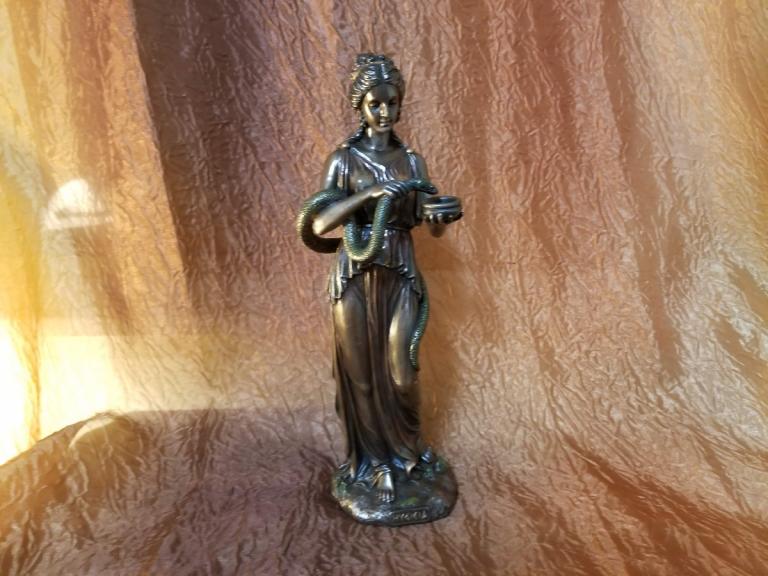I am overcoming the demon of self-hate by feeding it.
The trigger was learning that a friend I like and admire has privately complained about me to other friends for years. It was a shock. I had believed the friend returned my affection and thought well of me. To discover an unexpected well of disdain in someone I trusted uncovered a well of self-disdain in me.
I took it on myself. I linked this to every time I had lost a friend or lover. I looked in the mirror and saw a person who deserved this. I couldn’t say exactly what I did or what part of my character made me so despisable, but clearly those actions and traits tainted my being.
I doubted every interaction with every friend. I had believed my connections to be genuine, built on mutual regard. Now I experienced every conversation as tentative. Did they really think warmly of me or was the cordial exchange secretly frosty? Was it just that they hadn’t known me long enough to discover my despicable inner nature? When would I wear on them enough that they would pull away? When another friend didn’t respond to my offer to talk I took this as a sign that we weren’t really friends.
My Tantric training taught me to recognize this as a grantha, a Sanskrit word which means knot. Like all Sanskrit words this has layers of meaning. Grantha is a kind of script first written on palm leaves. Granthas are the knots of our character written on the leaves of our lives. They’re not so much flaws as habits, places where we have contracted around the afflictions that have caused us suffering. Meditation practice clears these knots and frees the energy of the subtle body. This is a main focus of Tantric practice. Clearing the knots releases the pain trapped in them which frees us to experience peace.
When an event triggers an emotional reaction this is an opportunity to clear the knot. The first step is identifying the category of the affliction. In this case the category is self-hatred. When I first learned the categories I thought wow, that’s a bad one, I’m glad I don’t hate myself. The experience of being triggered taught me that I do hate myself. We all doubt and criticise ourselves. It’s part of the human experience.
I have also been taught that it is important to stay with the feeling itself and not to let it go into story. Instead of spinning out into narratives about what we did, what others do, we bring thoughts back to the body and work toward clarity and stillness. That’s not an easy thing to do. It’s one thing to recognize the trigger as an opportunity to advance in spiritual practice. It’s another thing to endure the sensation. There’s a reason it’s called suffering! Emotional pain can be stronger than physical pain. We want to make it stop, whatever that takes.
One way I could respond to the person who criticises me privately is to ask them what they dislike in me and then try to change to gain their approval. This would shape who I am around their needs with no guarantee that they can articulate their needs, or that they are able to communicate directly and honestly, or that or that anything I do would ultimately win their genuine regard.
Another way would be to ask other friends to support me. I could replace the mirror of disdain with the mirror of approval. This happens on social media all the time. It’s one of the drivers for sharing my life in public, to get that hit of approval that props me up. I could tell my friends that I got a report that someone I admire has critcised me to others. I could pull in their disapproval of the person’s actions and their sympathy for me to reinforce my self-image as supportive, affectionate, well thought of and accomplished.
This time though I was able to stop myself. Using other friendships to repair the fracture in my self-image caused by a frenemy doesn’t address the root cause of the knot. As long as I base my personal well being on the approval of others I will suffer when the approval goes away. This is a Tantric practice too, centering the sense of self away from the need for approval and grounding in our own experience.
But I still felt terrible. Unworthy. Crushed. And I still had this doubt about every interaction with every friend that crippled my interactions with them.
I took this to practice. Every night I sit with deity, what a friend calls the faces of light. I offered up the triggering event which brought up the mirror of self-hatred.
The response came as Babalon’s message of radical acceptance of experience. She says:
What your friend hated in you was perfect. You were exactly what that person required you to be. In that moment you offered yourself as a sacrifice. It is amazingly generous to inhabit the roles which are essential to the play of existence. Whatever you do is whatever is needed. You are perfect in every moment.
There are numerous stories about Tantric nuns and monks who offer their bodies to men who attack them and animals who are hungry. They sacrifice themselves. This is one way to relate to our demons. Instead of overcoming them, triumphing over them, killing them, we feed them. We give them our literal bodies, our emotions, our sense of self. Lama Tsultrim Allione describes the process in five steps.
If I hold up the person who triggered my self-hatred for public criticism I perpetuate my own suffering. That person too is doing the best they can at every moment. What we hate in others is never about them, it points to what we hate in ourselves. I can’t work that out for the person whose reported disdain triggered me. I can accept that their experience of me is not what I had thought it was. I can offer them what I had wished it to be, that they would experience my approval, admiration, and warmth. I can continue to offer these things without expecting them in return. I can wish them well and let them go.
The ultimate test of self-acceptance is to welcome what the hatred of others has shown you that you hate in yourself. The trigger didn’t cause my self-hatred, it just illuminated it. When I recognize that I am the cause of my own suffering I have the opportunity to stop. Babalon says as long as I love you that is all that you need.
This self which you are which has been hated…This self is the self which I love.
I rest in the infinity of her love.




